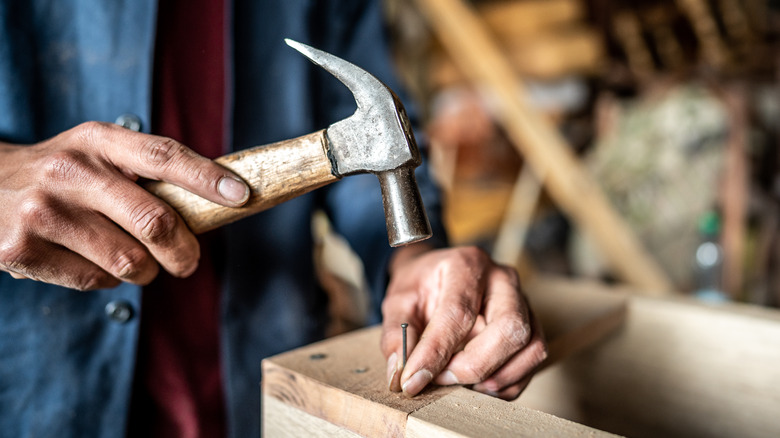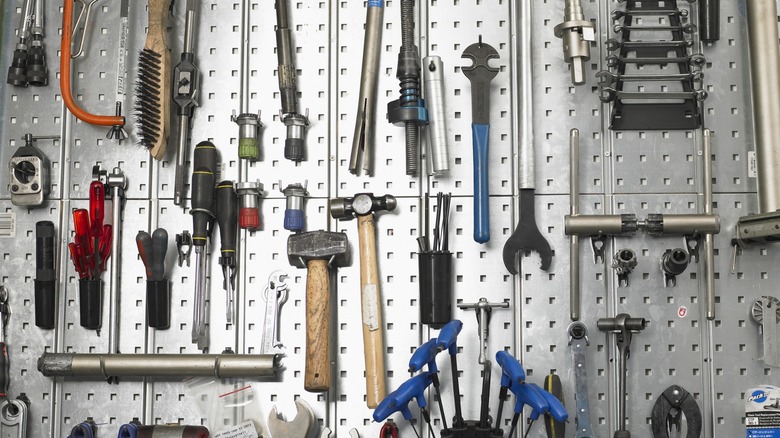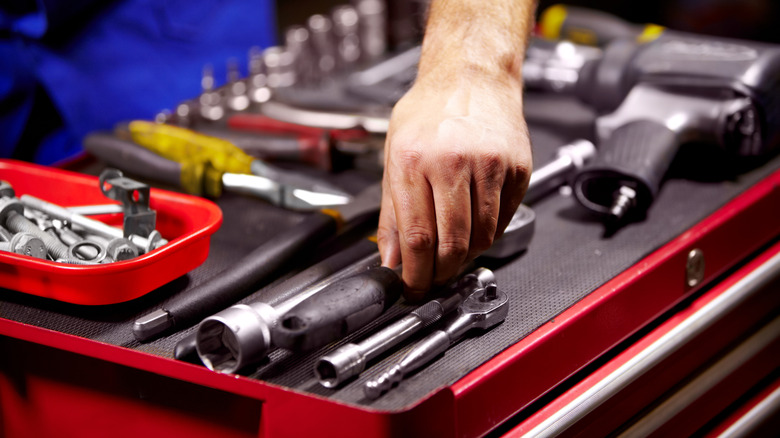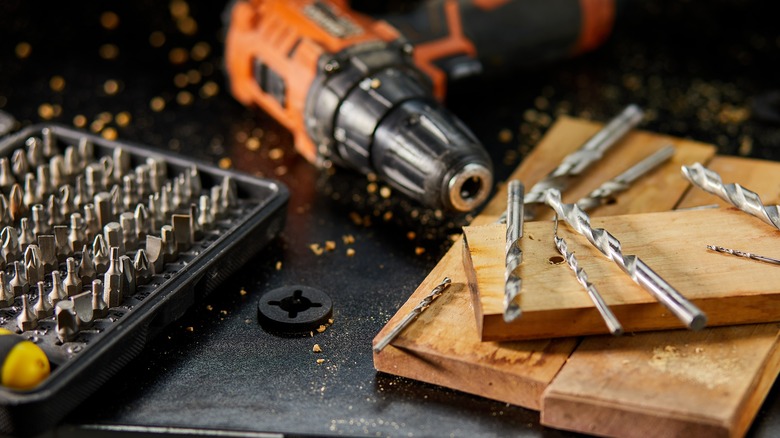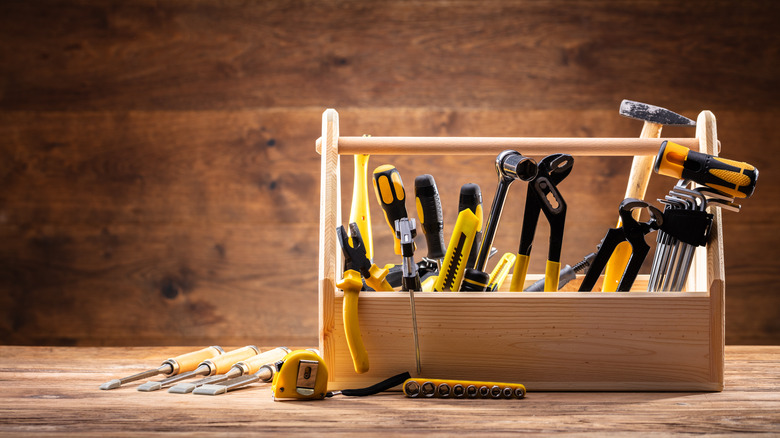The Pros And Cons Of Buying Budget-Friendly Tools
We may receive a commission on purchases made from links.
There's nothing quite like getting a great price on a tool. When you look a $150 drills and $100 screwdriver sets from the big names, finding those cheaper alternatives can feel like you've stumbled upon some shopping hack. The question is, though, did you stumble upon a great deal, or are you sacrificing quality for the sake of saving money?
Budget-friendly tools fall outside the realm of big names like Craftsman, Ryobi, DeWalt, and Milwaukee. You pay a lot for products from these leaders of the hardware industry, but tend to walk away with a high-quality product that should last you years. Does that inherently mean anything outside of those notable brands should be immediately perceived to be junk?
The best way to answer that is to break down the pros and cons of buying tools on a budget. We'll look at some of the most important highs and lows that you should consider when you're shopping for tools. We've also provided some examples to best illustrate the differences between budget-friendly and higher-end models to give a clear idea of what to look out for.
Simple, user-friendly design
Simplicity can often be key in the realm of tools. When you approach a DIY project, do you want to be fiddling with a complex power tool or would you prefer to just get right to work? Some may consider it a con, but cheaper tools that aren't overly complicated can be more convenient than more expensive tools that are like puzzles to use.
Take the Black+Decker 8V Max Cordless Drill/Driver. It's a very simple, keyless chuck design with only one setting and a built-in rechargeable battery. It's as uncomplicated as you can get, and for $30, it's not a bad value for getting things done around the house. Compare that to Craftsman's 20V Cordless Drill/Driver, which features a detachable battery, a dual-speed gearbox, and multiple clutch settings for light applications and heavy-duty jobs. At $80, the Craftsman is overkill if you're only working around the house. The clutch setting, which is represented by the dial of numbers near the front, is something you'll likely never touch if you're merely drilling screws into drywall, screwing handles onto your furniture or cabinets, or working on arts and crafts projects.
If you don't need it, why pay for it?
Prolong the lives of your nicer tools
Ever come across a screw or bolt that just won't move? It's usually at that point you break out the big guns or piece together a solution. If you want to prolong the life of your more expensive tools, you won't want to exert too much force or pressure on them. That's where a good budget-friendly alternative comes into play.
If you're going to stock your garage with high-end tools, it's good to have a few junky ones set aside. After all, you don't want to be slamming a hammer down on your $50 Craftsman ratchet to loosen a stubborn bolt. Save that for the $12 alternative from Sata.
The same concept can be applied to manual tools versus power tools. Would you prefer to burn out your costlier Ryobi drill or try to find a manual solution using a cheaper screwdriver? AG Web's Dan Anderson illustrated it best, stating, "Rather than risk twisting off the bolt head with the sheer, abrupt power of an air- or battery-powered impact wrench, I grab my El Cheapo ⅜" or ½" breaker bar."
Sometimes, it's not just that cheaper is better — t's that cheaper can be a life saver for your expensive tools.
Low price means fewer features
While some may find fewer features to be a pro, others may look at it as a detriment. Let's reverse the above comparison between the Black+Decker and Craftsman drill and look at it from the viewpoint of a construction worker or someone with more extensive projects to finish at home. Those individuals are going to want the extra torque and the external 20V battery because they'll be better suited for drilling into thicker, more stubborn surfaces.
You can even apply this to something as simple as a screwdriver. For $9, you can get a pair of Craftsman screwdrivers. Spend $21 more, and you can enjoy the benefits of a Klein Tools ratcheting impact screwdriver, which allows you to work quicker and smarter.
Before shopping for tools, consider what you're using them for. Can you get away with low-cost options with minimal features, or do you need those added perks and benefits that come with a higher price tag?
Limited warranties
If you opt for cheaper tools, don't expect to get the same support you would from more expensive options. The warranty you get is really a matter of no-name brands versus established names, which typically translates to budget-friendly versus higher priced.
Deko, for example, is known for being a low-cost brand. Its power tools are only backed by a one-year limited warranty. Compare that to Craftsman, which offers a three-year limited warranty on most of its power tools. Some tools, like hex keys and pliers, come with a full lifetime warranty. Well-known and more expensive brands like Craftsman also offer product registration, making using the warranty and keeping track of the tools you own much easier.
The trade-off, of course, is that you'll spend more on Craftsman tools. A Deko Pro 20V Cordless Drill with a battery and drill/driver set will cost $43. Alternatively, a comparable Craftsman without a drill/driver set is priced at $80.
When shopping for budget-friendly tools, you have to consider how much you'll use them. If you expect to put a lot of mileage on it, it may be best to consider a higher-end option with a longer warranty.
